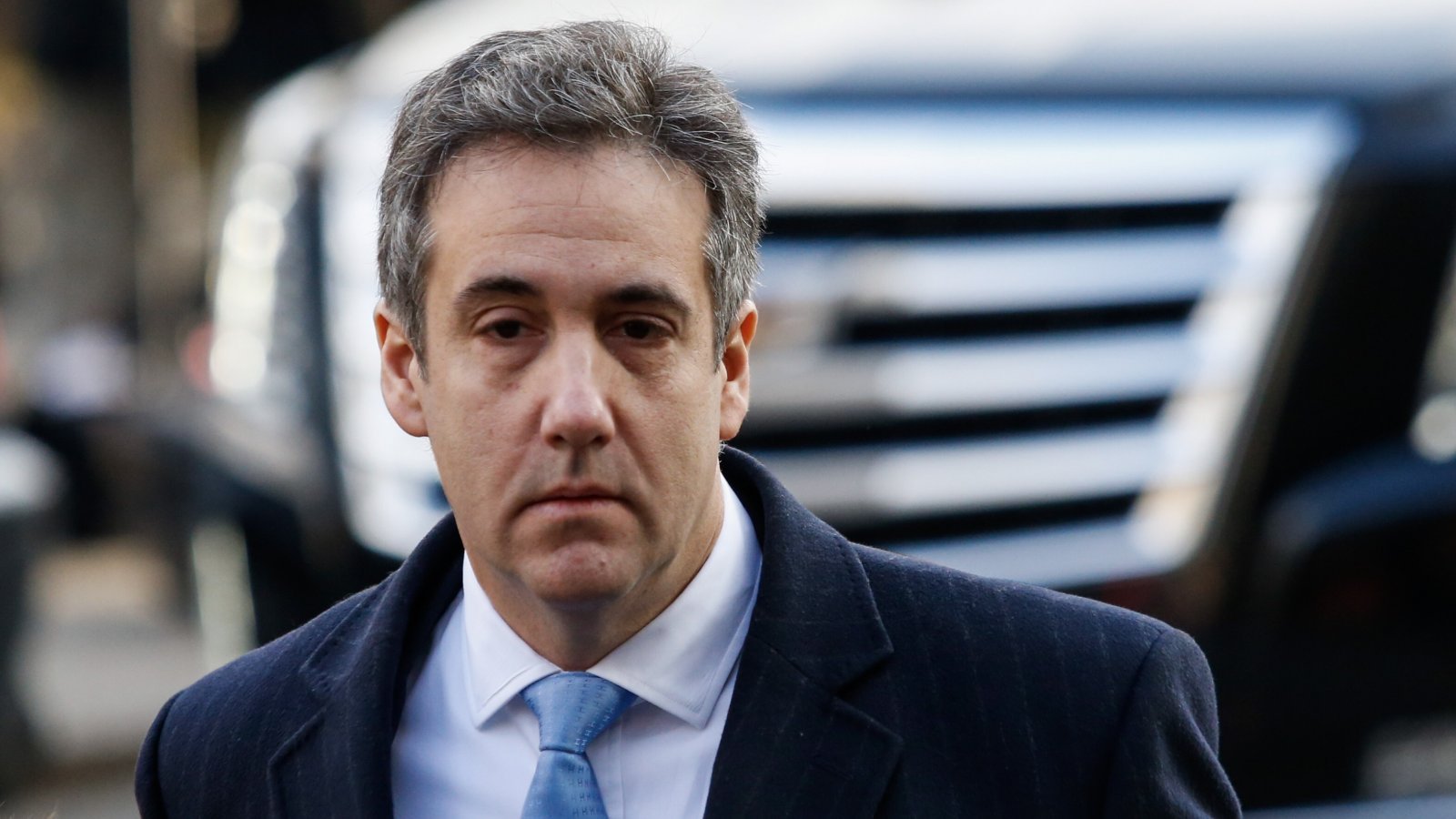
Michael Cohen will be spending most of this week on Capitol Hill, as he testifies before the Senate Intelligence Committee Tuesday, the House Oversight and Reform Committee Wednesday, and the House Intelligence Committee Thursday.
Only Wednesday's House Oversight Committee hearing will be public.
The scope of the widely anticipated hearing planned for Wednesday by the House Oversight Committee was laid out in a two-page memo distributed Sunday by the panel’s staff to its members.
Cohen will not be questioned about Russian interference in the 2016 presidential election and possible coordination between the Trump campaign and Russia, according to the memo.
But the document lists an array of other possible areas of questioning, including Trump’s “debts and payments relating to efforts to influence the 2016 election” and his “compliance with campaign finance laws.”
(...)
The memo says that the scope of the House Oversight Committee was set by Chairman Elijah E. Cummings (D-Md.) after consultation with the Justice Department and Rep. Adam B. Schiff (D-Calif.), the chairman of the House Intelligence Committee.
Trump will be out of the country as Cohen delivers his testimony. The president is scheduled to depart Monday for a summit in Vietnam with North Korean leader Kim Jong Un.
In an opinion piece for CNN, former federal and state prosecutor Elie Honig suggests five questions Cohen should have to answer publicly Wednesday. The following three relate to the Russia probe:
Before you gave false testimony to the Senate about the Trump Tower Moscow project, did you discuss or coordinate your false testimony with anyone else?
Cohen pleaded guilty in November 2018 to lying to the Senate about the timing of the Trump Organization's efforts to build a skyscraper in Moscow. Cohen falsely testified that the project ended by January 2016, when in fact it continued until at least June 2016 (well into the campaign season and after Trump had emerged as the presumptive Republican nominee).
While uncertainty remains about the involvement of Trump and others in Cohen's false testimony, Mueller confirmed in Cohen's sentencing memo that Cohen provided "relevant and truthful" information regarding various topics, including "the circumstances of preparing and circulating his response to the congressional inquiries." So, we know that others were involved in preparing and reviewing Cohen's false testimony. Committee members should dig deep into who else worked with Cohen to develop his false testimony, and whether those people knew that the testimony was false.
Did the Trump inaugural committee accept money from foreign contributors or commit other crimes?
The Southern District of New York recently subpoenaed the Trump inaugural committee for documents relating to its donors, vendors and finances. The subpoena lists a broad array of potential crimes under investigation, including money laundering, conspiracy, false statements and illegal contributions from foreign nationals.
... Committee members should drill deep on Cohen's knowledge of the inaugural committee's financial practices, including its receipt of donations from foreign nationals (either directly or indirectly through third-party straw donors) and any potential embezzlement or self-dealing by inaugural committee officials. A spokesperson for the committee has stated that the inaugural committee intends to cooperate with the inquiry.
Did Trump or anyone else ever talk to you or your lawyers about the possibility of a pardon?
Cohen's decision to cooperate with prosecutors clearly struck a nerve with Trump: In April 2018, Trump tweeted that Cohen was "a fine person with a wonderful family" and praised him for declining to "flip." Eight months later, Trump borrowed mafia lingo and tweeted that Cohen was a "rat."
The New York Times reported last week that Trump's attorneys reached out to attorneys for Paul Manafort and Michael Flynn to discuss possible pardons, potentially as a means to prevent them from cooperating with investigators. (Trump denied the Times reporting.)
Trump might have used similar tactics to try to keep Cohen quiet. Committee members should ask Cohen whether Trump or any other person ever discussed the possibility of a pardon with Cohen, and whether Cohen took such offers as an effort to dissuade him from cooperating.
House Oversight Committee Republicans and staunch Trump allies Jim Jordan (R-OH) and Mark Meadows (R-NC) have sent Chairman Elijah Cummings (D-MD) a letter requesting the committee include Deputy Attorney General Rod Rosenstein in Wednesday's hearing so they allegedly can ask questions about the DOJ's assessment of Cohen's overall credibility.
However, Jordan and Meadows have long embarked on a campaign to discredit those investigating the president, and this move seems designed to continue that effort.
Michael Cohen needs to answer these five questions (CNN)
Cohen to be publicly questioned on hush payments and Trump’s truthfulness (WaPo)